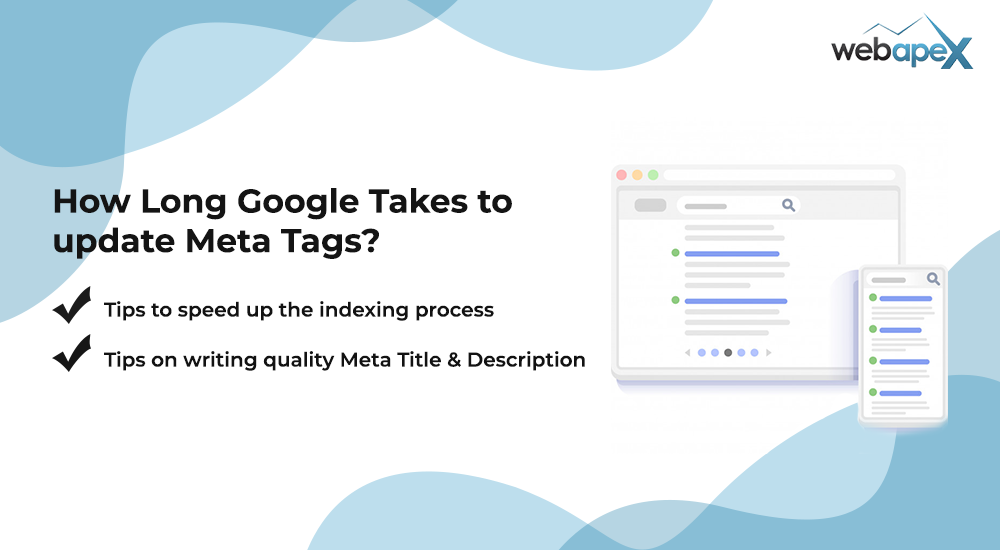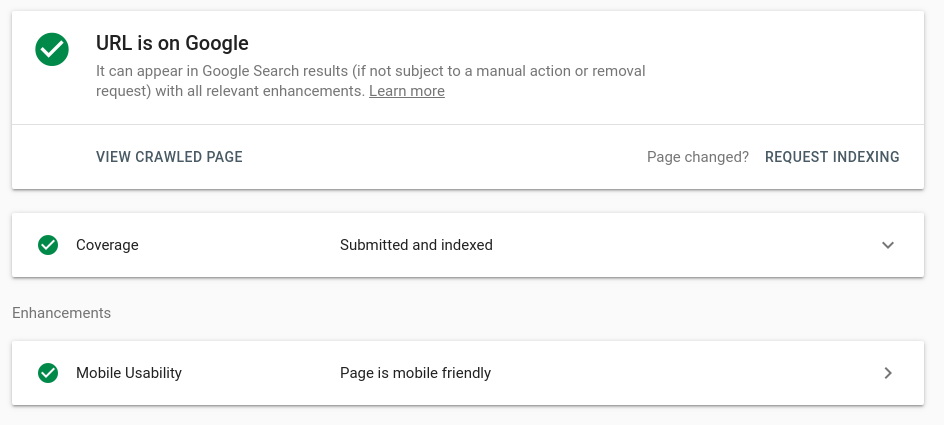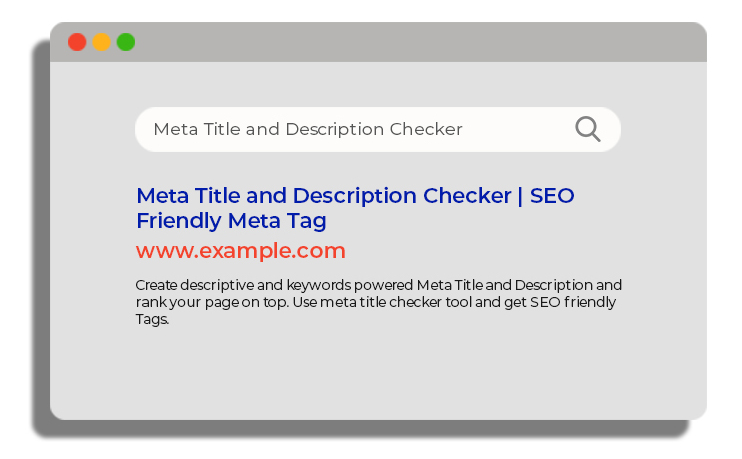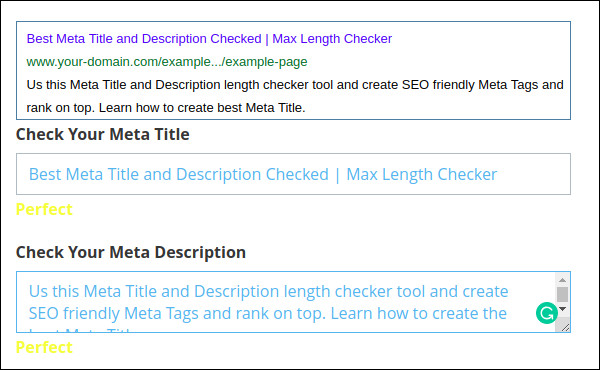Meta title and description appear in the search engine result pages and keeping them optimised means your page can rank better. Over time it is important to change the title and description to keep the page more relevant. Also, when you are already ranking, then it is important to bring creativity and uniqueness to your title so that you get more clicks than your competition.
Table of content:
- Time Taken by Google to Update Meta Tag
- Get Meta Changes Indexed Fast
- How To Write Meta Descriptions
- Number of Keywords in Title & Description
- How to add FAQs snippets
- Boost CTR with Creative Title Tag
- eCommerce Tag Optimisation
How long does it take for Google to update Meta Title and Description?
You can expect your meta title and description to get updated in 7 to 15 days. Google can take less or more as it is impacted by various factors.
If you would like your metadata to be updated more regularly by default then you will have to maintain a healthy website with fresh content to be uploaded regularly. You can also set the crawl priority in your XML sitemap.
Thankfully Google has URL inspection tool to request Google to read the changes faster. The priority index queue considers various factors to process the request. Generally, with this method, you can get this updated in 5 to 10 min if you have good website health.

Related: If you face the issue of why “Google not indexing my site” then you must work on your website authority overall.
How to get modified meta title and description indexed fast?
If you have changed your meta title and description then you can follow the following instructions to get it reindexed fast.
How to change google search results title for my site using HTML?
The quickest way to get your website page changes re-indexed fast is by submitting your URL to Google search console URL inspection and click on Request Indexing.

- Note: Just by submitting to search console doesn’t guarantee your page will be reindexed fast.
- If you have a good site with rich content on your website then submitting changes can be re-index faster. So, it is critical that you have a healthy website.
- Keep your website fresh by adding regular content so that crawler can visit your site more frequently.
- Make sure the page you are trying to get re-indexed is linked from prominent places in your website.
- In a simple term, if your page will have powerful content then you will have much higher chances of getting reindexed faster.
- Also, update your XML sitemap at a regular interval.
How to force Google to reindex Meta Title and Description?
You can’t force Google but your request Google bot to re-index the changes in your website to display updated title and description.
If you follow the above steps then your changes may appear within a few minutes.
It is important to note that Google takes various signals to re-index pages so it is not guaranteed that your page will be re-index within a few minutes but if you have a quality website then your chances are much higher.
Related: If your SEO meta title isn’t showing as entered in Google then you need to apply some creativity.
How To Write A Good Meta Title and Descriptions?
Learn how to write meta descriptions and SEO friendly title to boost your ranking. Writing a perfect meta description in 2020 is an art. Before you write the meta tag, you should know the objective of the page and build powerful content and then use the following techniques to create a highly optimised page title and description.
- Try and keep your title within the right length to ensure it will appear rich. By keeping your meta description checker limit will help you to target your keywords in the best possible way.
- Include keywords in your title and description.
- Don’t just overload with keywords, make it descriptive.
- Keep a history of your meta title and description and use the combination which performs the best.
- Keep your main keywords related phrase at the start of your meta title.
- Do not repeat the same keywords multiple times.

How many keywords should you have in your meta title and description?
There is no limit as such but try including your main keywords in the title and secondary in the description. As the space is limited, you can only add a few keywords.
Please note that Google may fetch the title and description from your page body content based on the user’s query. So, if you have several keywords to target then make sure you have a well content planned page.
If you can do a proper keywords analysis then you can plan your page in a very creative manner to answer user’s query in a very effective manner.
How to add FAQs structured snippets?
FAQs snippet is a great way to make your page stand out in the crowd.
If you have a WordPress website then you can use Yoast SEO plugin to create FAQs and it also creates the schema code which is required for it to be indexed.
If you have a custom or other kind of website then you can use FAQs schema generator tools where you can add your questions and answers and get the code to be added in your website.
My FAQs snippets are not showing in Google SERP, how to fix this?
It is important to ensure you have no error in your schema code, you can use the Google structured snippets tool to check if any error in your code.

Google only shows the FAQ snippets on the first page of the result and generally do not show the snippets for the homepage.
Make sure to include all questions and answers in your website body.
How to boost Click Through Rate (CTR) with powerful title and description?
Generally higher the page appears in Google search, the more likely to get the website visit. But did you know you can influence users to click on your site more than your competition which may be appearing just above you?
Firstly good job on ranking your page on the first page of Google. Now you can use some creativity to make your title appar more catchy than your competition which will have a significant impact on CTR.

Here is how you do it.
Prioritise Your Primary and Secondary Keywords
Generally, people aim to get ranking for top keywords and they do not pay attention to secondary keywords.
Keep your Page Title in Title Case
It makes the page more readable. Some try to keep all in UPPER CASE but in my view, it’s just overdoing it. Don’t look spammy, be creative.
Include your Uniqueness
If you have any point of difference then you should try an accommodate in title or description which make it more appealing and it can encourage visitors to click on your website.
Example:
- Best Rated
- Award-Winning
- Guaranteed
- #1
- Free Delivery
- 30 Days Free Try
- No Credit Card Required
- [Infographics Included]
- Download PDF
How to Optimise eCommerce Meta Title & Description?
The homepage and category pages are the most important part of most eCommerce SEO title tag optimisation. You should pay special attention to these pages.
On top, if you only have limited products on your site then you can also optimise your products’ meta details manually. But if you have 100s of products then you may consider keeping your product heading as your title or you can automate by including keywords and other related phrases.
It’s always best to consider meta tag optimisation at eCommerce website design stage but if you don’t get it right at the start that’s OK too, you can modify it as you go.
Check out our full eCommerce SEO checklist to learn more.
Need help?
If you need help then get in touch with our qualified SEO consultant and discuss your requirement.
FAQs
Google may create page title and description based on the content on your page and the search query. Meaning Google doesn’t always show the same title and description entered by you.
The fastest way to try and get updated by submitting your URL to Google Search Console URL inspection tool. But if you don’t have a healthy website then it may still talk longer. You should also consider applying some changes in your body of the page so that Google can see the change to re-crawl it.
Generally, it is a good practice to have your business name at the end. But your first priority should be to include main keywords and if you have space available for your business name to be included then you should consider adding that.
No. Google doesn’t bother about the meta keyword. Build powerful content and have a compelling title tag and description.
If you keep your meta tag length bigger than the standard length then Google will truncate some words.
